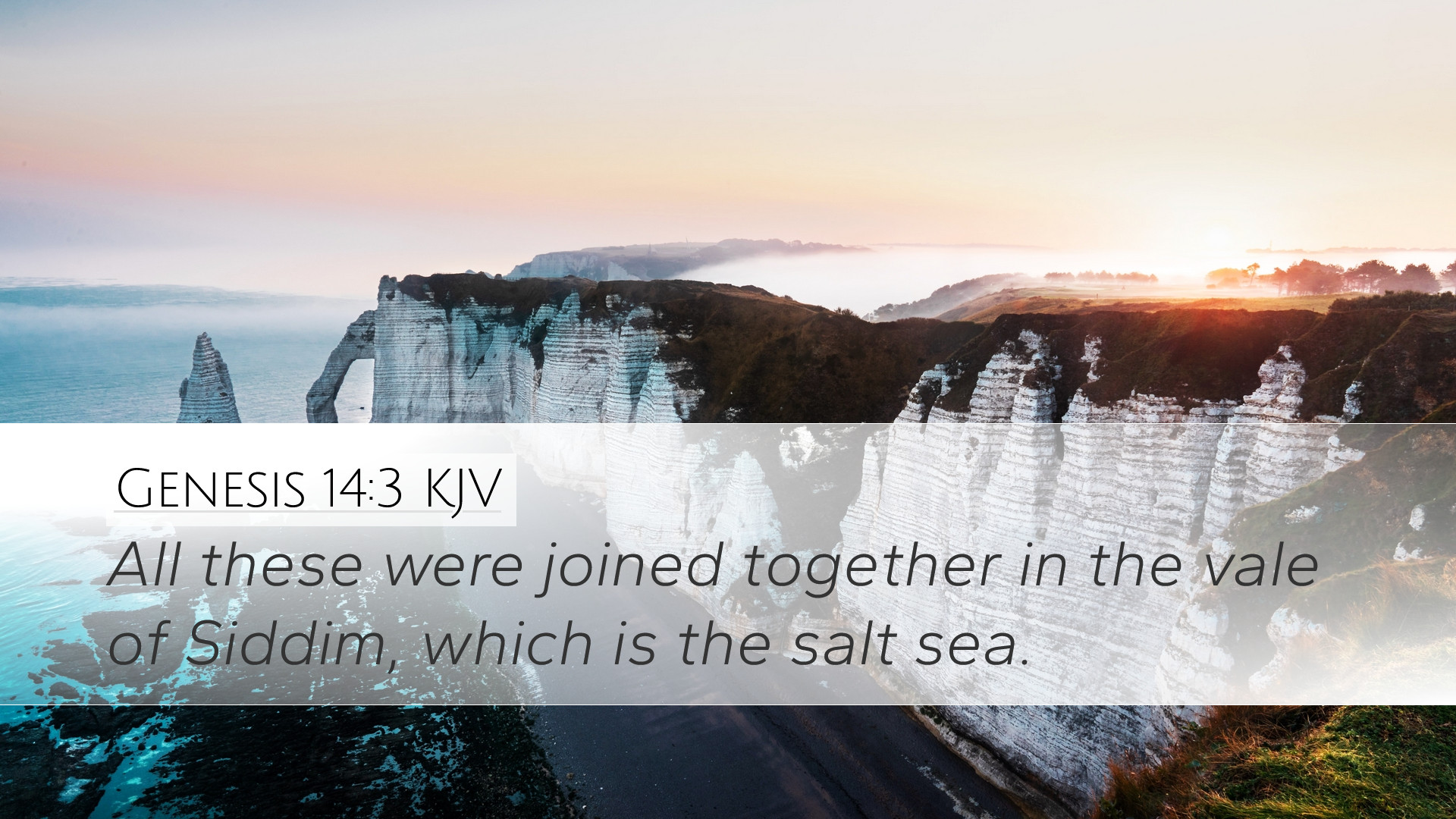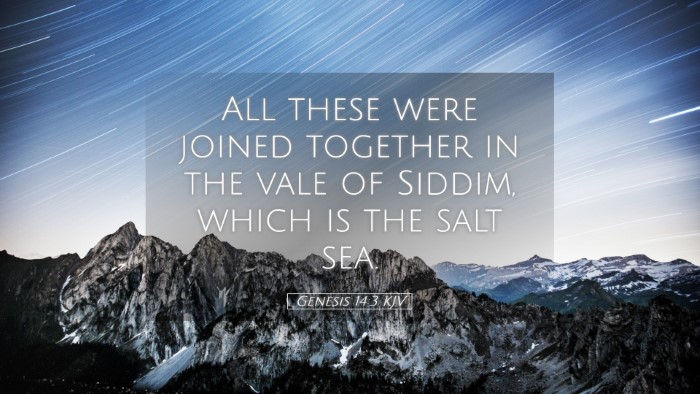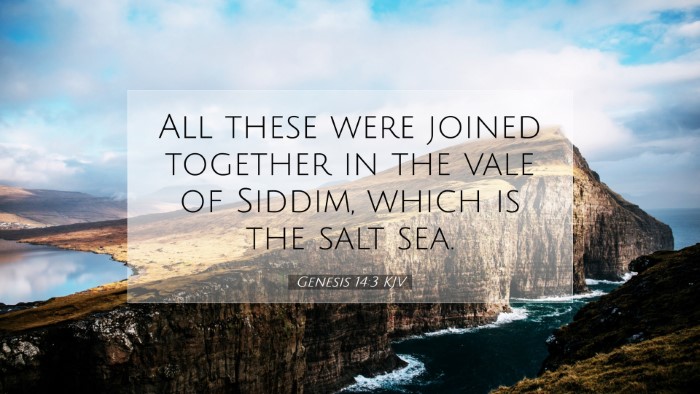Bible Commentary on Genesis 14:3
In this verse, we see a significant moment in the narrative of Genesis, particularly regarding the alliances and conflicts of the ancient Near East. Genesis 14:3 states, "All these were joined together in the vale of Siddim, which is the salt sea." This passage may seem simple on the surface, yet it speaks volumes about the historical context, geographical significance, and theological implications of the events described.
Contextual Background
To understand Genesis 14:3, it is crucial to consider the surrounding verses within the chapter that recounts the war among various kings. The alliance of kings leads us to reflect on the dynamics of power and the unfolding of God's providence throughout history.
Geographical Significance
The “vale of Siddim” being identified as the “salt sea,” which is the Dead Sea, carries substantial geographic and symbolic weight. Matthew Henry comments that this location serves as a boundary for numerous biblical events, highlighting its significance in the overarching narrative of scripture.
- Desolation and Judgment: The Dead Sea is often associated with barrenness and divine judgment, especially in the context of the destruction of Sodom and Gomorrah, which also took place in the vicinity.
- Symbolism of Salt: The mention of salt not only refers to the mineral itself, often used for preservation, but also evokes imagery of death and lifelessness, contrasting the life-giving aspects of God's covenant.
Alliances and Conflicts
Albert Barnes emphasizes the importance of the alliances formed in this context. These alliances are crucial for understanding the socio-political dynamics of the time. The verse indicates cooperation among the kings, setting the stage for both conflict and a display of divine intervention.
- Political Alliances: The kings joined together in battle exhibit a human tendency towards alliances for power, yet they ultimately lead to conflict, foreshadowing the futility of relying on human strength over divine guidance.
- Spiritual Warfare: This coalition serves to remind the reader of the greater spiritual warfare at play; earthly kings are often but pawns in God's larger plan of redemption.
Theological Implications
Adam Clarke observes that this passage correlates with the themes of covenant and God’s providence. The alliances described are contrasted with the promise God made to Abraham, pointing to the ultimate fulfillment of God's covenant.
- Covenant and Community: God's covenant with Abraham, which includes not only blessings for himself but also for the nations, compels an understanding of the divine purpose behind human alliances.
- God’s Sovereignty: The mention of various kings highlights that while the earthly leaders may plot, it is ultimately God who governs the outcomes, reinforcing the sovereignty of God in the affairs of men.
Application for Believers
This verse invites modern readers to reflect on several key applications:
- Divine Guidance: Just as the kings collaborated in the vale of Siddim, believers are reminded to seek God's guidance in the alliances and decisions they make.
- Understanding Conflict: The narrative of conflict should encourage Christians to recognize that spiritual battles require reliance on God rather than human wisdom.
- Faithfulness in Adversity: Through God’s promises, believers can take solace knowing that, like Abraham, they are partakers in God’s greater plan despite worldly chaos.
Conclusion
Genesis 14:3 encapsulates a rich tapestry of historical, geographical, and theological insights. By drawing from the commentaries of Matthew Henry, Albert Barnes, and Adam Clarke, we recognize the multifaceted nature of this scripture. Pastors, students, and theologians should find not only historical interest but also profound theological implications that speak to the heart of faith and divine sovereignty.


